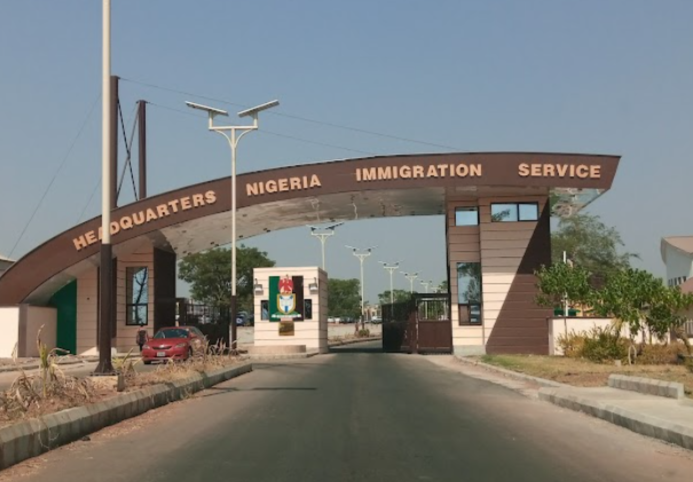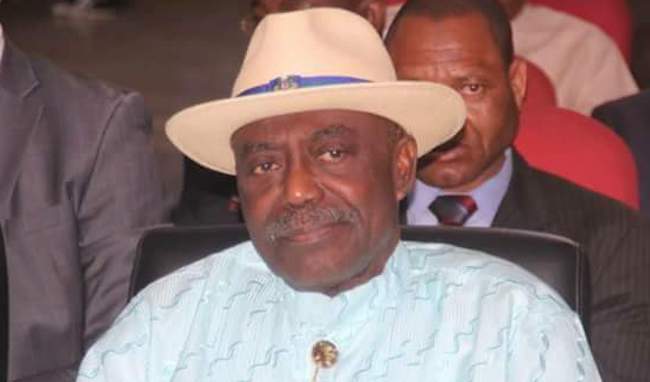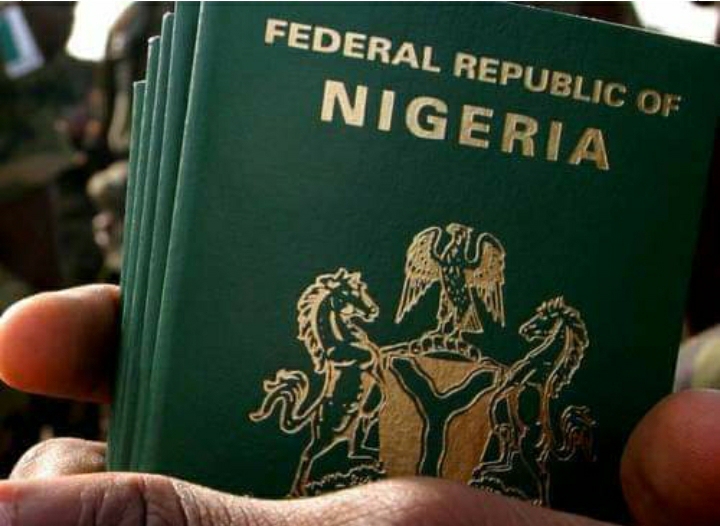The Federal Government has been asked to take punitive action against officials of the Nigeria Immigration Service (NIS) fingered in the extortion of passport applicants at various immigration offices nationwide.
The calls were made during a radio discussion of an investigative report by Daily Trust, which exposed how Immigration officers in Lagos and Oyo states run a well-coordinated chain of corruption over international passport issuance.
The report says the officials collude with agents to compromise the established process of obtaining a passport for an agreed amount of money.
Some staffers of the Nigeria Immigration were said to have been secretly filmed extorting passport applicants who were either impatient to follow due process or frustrated by the length of time applying for an international passport takes. The report said they (NIS officials) inflated the passport prices and helped applicants falsify necessary documents like birth certificates and state of origin.
Political Economist and Public Development Researcher, Adefolarin Olamilekan led the call for the Federal Government to immediately tackle corruption in passport issuance during an anti-corruption radio programme, PUBLIC CONSCIENCE, produced by the Progressive Impact Organization for Community Development, PRIMORG, Wednesday in Abuja.
Olamilekan described the development as evil and dangerous, noting that the involvement of immigration officers in the passport fraud is the height of a lack of patriotism which must be condemned.
He urged the Acting Comptroller-General of Nigeria Immigration Service, Isah Jere Idris, Minister of Interior Rauf Aregbesola and the National Security Adviser, Mohammed Babagana Monguno, to take punitive action against immigration officials exploiting the system to defraud passport applicants in Nigeria.
He said the ongoing corruption portends doom for the country as it encourages the falsification of sensitive documents by applicants.
“The Minister of Interior, the Adviser to the President on National Security, is responsible for this issue because documents are being falsified, and foreigners are taking advantage of this to become Nigerians illegally. The Comptroller General of Immigration must stand out.
“We have heard so many good things that he’s doing, but this particular issue that his men are deeply in dirty deals in processing National passports for citizenship is something that he must stand out to correct or else posterity will not remember him for good,” Olamilekan warned.
He called on the Service and the National Orientation Agency (NOA) to enlighten Nigerians on how to legitimately obtain passports without patronizing touts while urging the federal government to harmonize citizens’ data to reduce administrative bottlenecks and corruption in public service.
Also reacting to the fleecing of passport applicants by immigration officials and touts, an investigative journalist with Daily Trust, Peter Moses, called on the authorities to ensure NIS staff exposed in the investigation are made to face the full weight of the law.
Moses, who stated that the unavailability of passport booklets from time to time was adding to the problem, criticized the printing of Nigerian passports outside the country’s shores.
“Today, passport booklets that usually create all those bottlenecks for the delay are still being printed outside Nigeria. My advice is that the federal government should first find a way of printing booklets in Nigeria, which I believe is one of the key steps to stopping all these corrupt practices. “Online application should be made to work. Moses recommended that physical interaction between NIS officials and passport applicants should be limited,” Moses recommended.
Some citizens who called in during the radio programme from Abuja, the nation’s capital, said the extortion of passport applicants by immigration officials was happening in other states of the federation.
They had these experiences to share:
Paul said, “The corruption issue in NIS is not only in Lagos and Oyo states. It also happens in Abuja. Years back, I visited the immigration office in Gwagwalada, Abuja. They told me passport booklets were not available until I met a God-fearing lady who came to my rescue.”
Charlie: “I wasn’t aware of the official price. I went to the immigration office but ended up falling into the hands of a third party and spent N35,000 in the process.”
Sanni: “Some weeks back, I went to the Headquarters office of immigration in Abuja. I wanted to get my passport, someone told me to pay N50,000 for a passport booklet, but I didn’t have the money. I walked round and round. I found out that there was nothing I could do. So I ended up paying N45,000 for it.”
Public Conscience is a syndicated weekly anti-corruption radio program used by PRIMORG to draw government and citizens’ attention to corruption and integrity issues in Nigeria.
The program has the support of the MacArthur Foundation.






